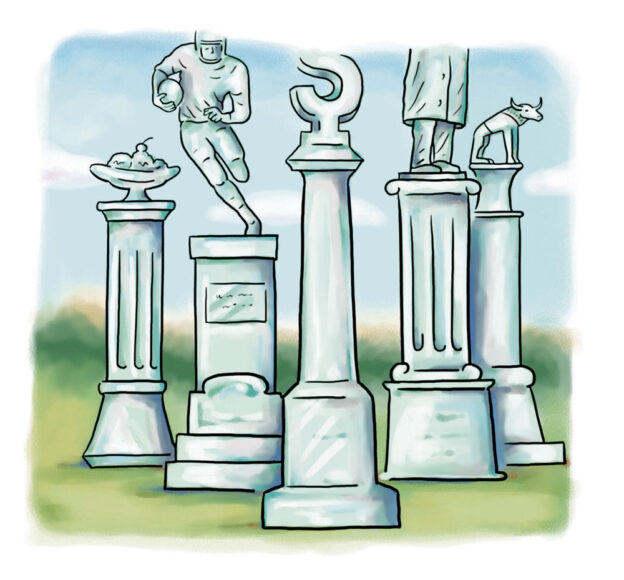A standard term for idols in the Torah is elohim acheirim, “foreign forces.” At one point in our parsha, though, the term elohim is used without the second word, signaling, perhaps, a less blatant sort of idolatry.
The word comes after Moshe’s prediction that Hashem will “scatter you among the nations.” There, he continues, “you will serve forces, the work of men’s hands, wood and stone…” (Devarim 4:27-28).
What occurs is the possibility that the elohim referred to that Klal Yisrael will fall prey to worshiping in galus are not the sort of avodah zarah foci referenced elsewhere, like the sun or moon or stars; not Baal Tzafon or Pe’or; not things like the Egyptians’ veneration of the Nile.
Perhaps what is being hinted at are “avoda zara lites,” so to speak, ideas or ideologies that may fall short of technical idolatry but are, for all intents, their parallels, as they can ensnare Jews into venerating them as ultimate, in effect, gods, when serving Hashem is a Jew’s true ultimate ideal. The Vilna Gaon is said to have identified the pasuk’s “wood and stone” with Christianity and Islam (the cross and Kaaba, respectively).
And Rav Elchanan Wasserman famously identified “isms” like Communism, Nationalism or Zionism – when embraced as ultimate ideals – as new idolatries.
We might update the list to include Humanism, Feminism and Scientism. And AnimalRights-ism, a Woman’sRighttoChoose-ism, QualityofLife-ism…
And that most enticing and pernicious mini-idolatry, Materialism.
The Shabbos on which Vo’eschanan is read is called Shabbos Nachamu, after the opening words of the haftarah, in which the navi Yeshayahu transmits Hashem’s nechama, or consolation to His people (Yeshayahu 40:1). Nechama though, also means “regret” or “reconsideration” (as in Beraishis 6:6).
When we truly regret our misguided fealties to “idolatry lites,” we will have set the stage for the end of our being “scattered among the nations.”
© 2024 Rabbi Avi Shafran
